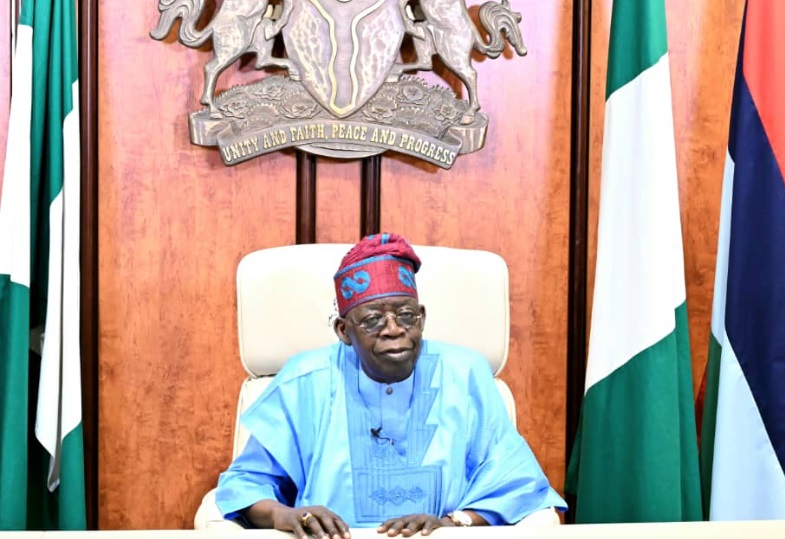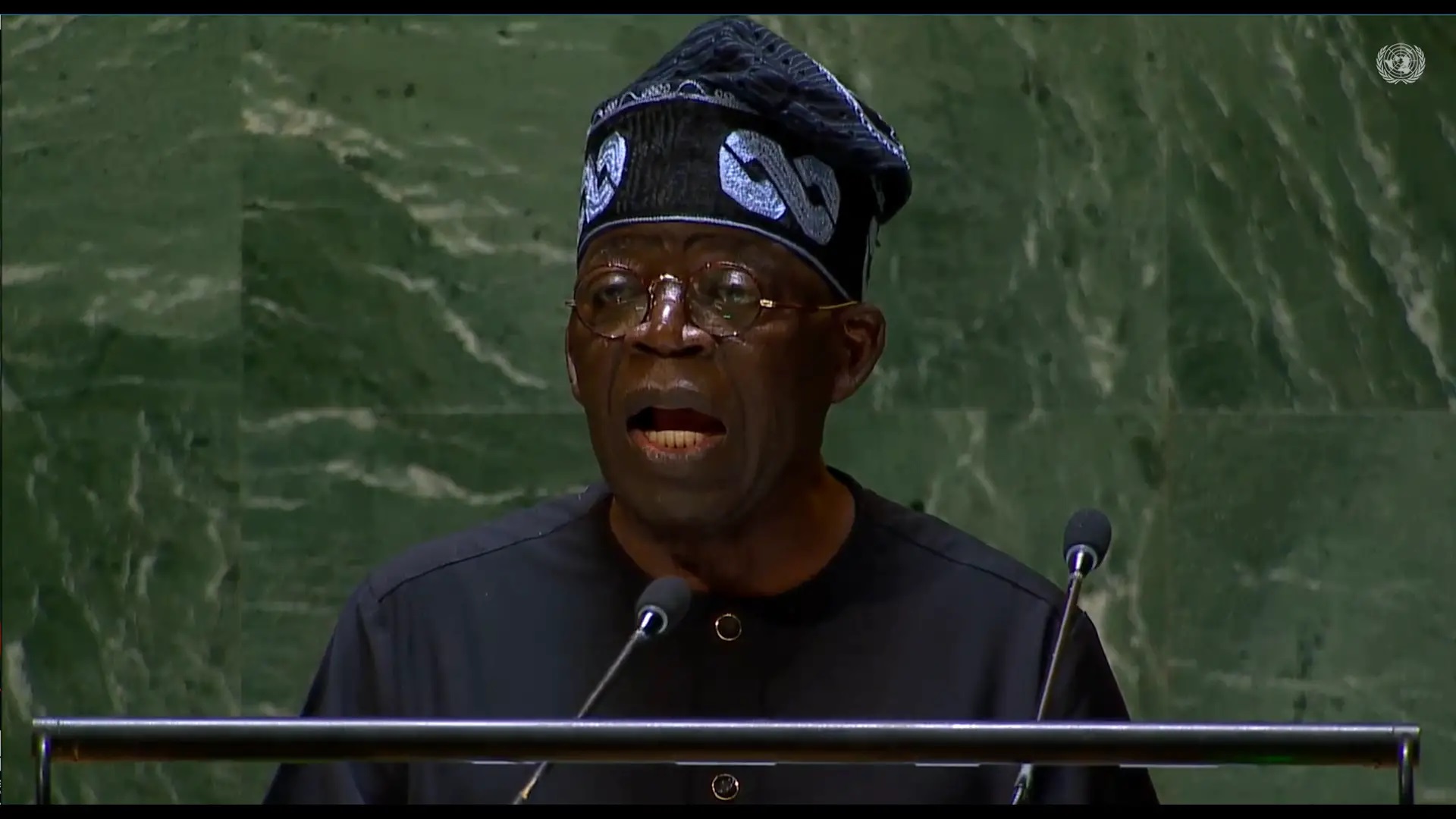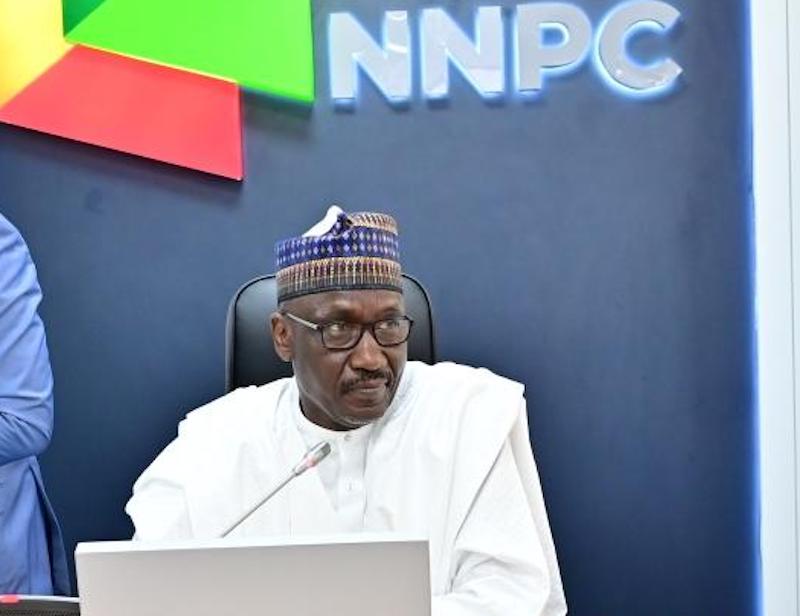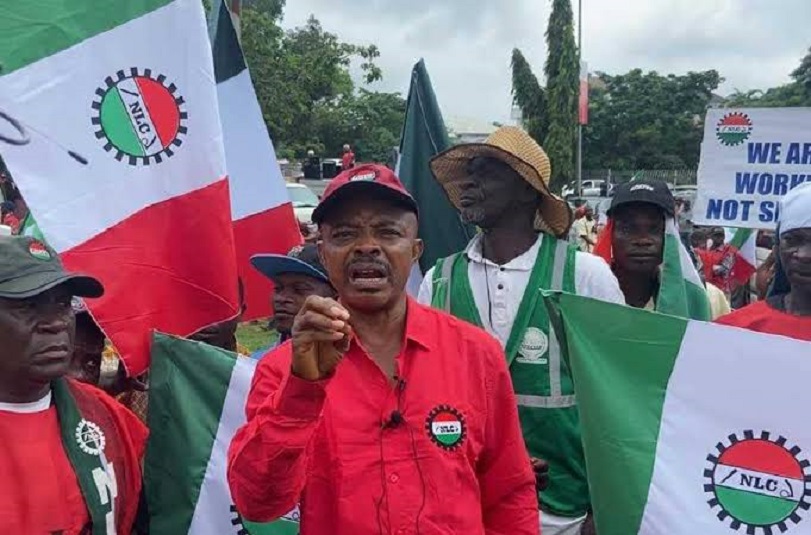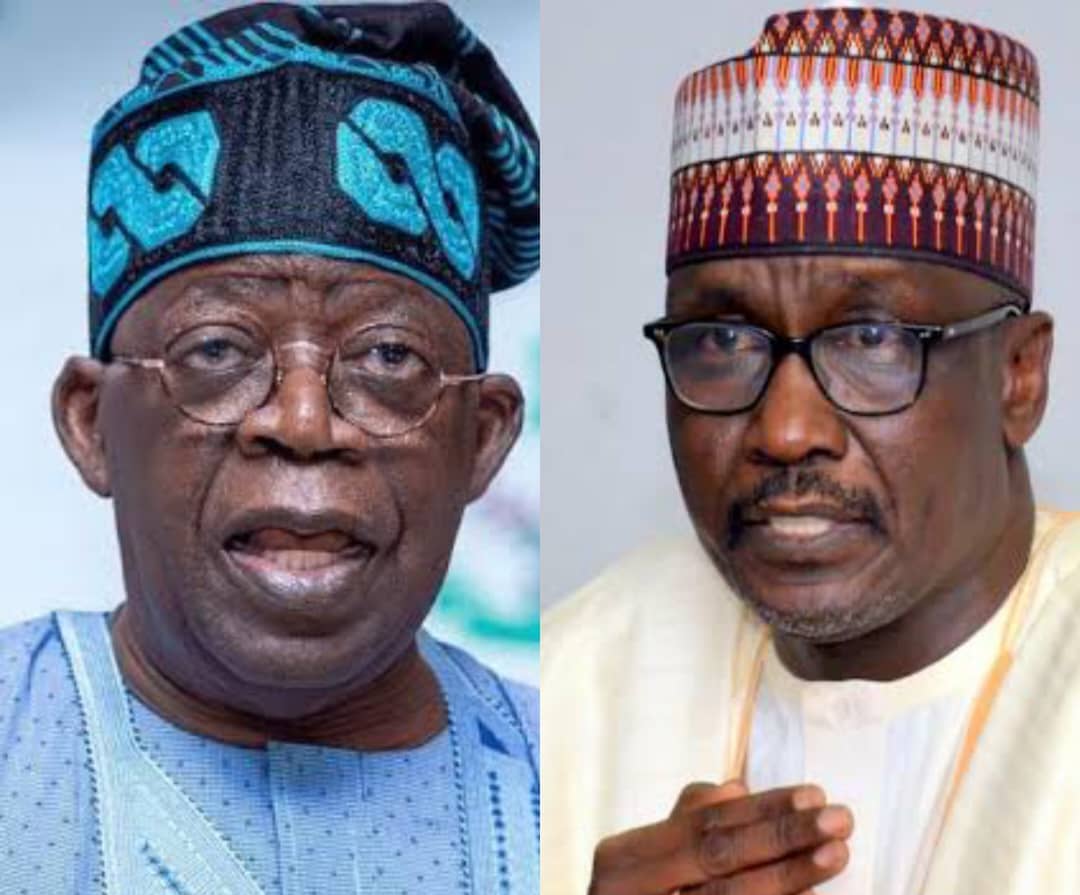Feature/OPED
Subsidy Removal: Poor Approach Worsening Shocks in Nigeria, a Comparative Study of Nigeria and India

By Peace Otonihu
The removal of fuel subsidies has been a recurring policy issue for many countries, including Nigeria and India. While both nations face similar challenges in the petroleum sector, their approaches to fuel subsidy reforms differ significantly.
In a newsletter published by Outlook Planet and updated in November 2024, India has since 2010 had a “fossil fuel subsidy policy” which has undergone several reforms since then. However, in Nigeria, the subsidy was removed through the president’s inaugural speech where he announced that “Subsidy is Gone!”.
This announcement since May 2023 has led to a surge in the price of petrol nationwide, an increase in the cost of goods and services as well as other ripple effects on the economy being a resource-dependent economy, without clear policy frameworks to mitigate the impact. In contrast, India’s gradual and research-driven approach to subsidy removal offers lessons in strategic planning and implementation that can be beneficial to consider.
The Background of Fuel Subsidies in Nigeria
A simplified definition of fuel subsidy is the portion of the total fuel price paid for by the government on behalf of its citizens. According to Zinami (2024), Fuel subsidies in Nigeria date back to the 1970s when they were introduced to reduce the burden of fuel costs on citizens.
They became institutionalized in 1977 under the Price Control Act promulgated by the military regime of Olusegun Obasanjo, which regulated prices of essential items, including fuel. Over the decades, subsidies grew to cover a significant portion of government expenditures.
By 2013, Nigeria was listed among the top 20 countries subsidizing fuel consumption, according to the International Energy Agency (IEA) as cited in (Soile & MU, 2015). Despite being one of Africa’s leading oil producers, Nigeria’s inability to maintain functional refineries forced it to rely heavily on imported refined petroleum products. This paradox has made subsidies unsustainable, leading to mounting fiscal pressures and limited development benefits.
In May 2023, President Bola Tinubu’s inaugural speech led to the abrupt removal of fuel subsidy triggered an immediate spike in petrol prices and a ripple effect on goods and services, reflecting Nigeria’s heavy reliance on petroleum for economic activity. A public announcement during an inaugural speech alone does not constitute a comprehensive fuel subsidy reform. India has faced challenges in the petroleum sector similar to those in Nigeria. According to the U.S. Energy Information Administration (“EIA”) 2022, India was the world’s third-largest energy consumer, following China and the United States, as of 2021.
The increasing demand for petroleum products, driven by economic growth, has been compounded by limited domestic production capacity, necessitating fuel imports. Like Nigeria, India has historically seen substantial government involvement in its petroleum sector.
In Nigeria, the most notable reform following the removal of the fuel subsidy is the reallocation of funds previously used for subsidies to sectors such as public infrastructure, education, healthcare, and job creation—areas intended to improve the lives of millions.
It is interesting to note that prior to President Tinubu’s inauguration, the Nigerian government spent approximately ₦400 billion (around $500 million) per month on subsidizing petroleum imports, as noted by Mele Kyari, the CEO of the Nigerian National Petroleum Company Limited (NNPCL), which is authorized to operate in Nigeria’s oil sector.
While redirecting these funds could theoretically represent a significant reform, its effectiveness remains uncertain if the impacts are not clear, and neither do they directly improve the standard of living or the cost of living of Nigerians who have to bear the brunt of subsidy removal.
For example, the 2024 budget allocated ₦1.54 trillion to the education sector, representing only 6.39% of the total budget. There was no notable increase in the education budget when compared with previous years which shows the rechannelling of fuel subsidy funds. This limited visible improvement suggests a lack of proper planning and insufficient research into the specific needs of Nigerians.
However, unlike Nigeria, India’s fuel subsidy reforms were guided by a thorough assessment of cost-benefit analyses and economic impacts, resulting in more effective outcomes for its economy. In India, fuel subsidy reforms were shaped by the work of government-appointed committees conducting extensive research and analysis.
Through these reform initiatives, India significantly reduced its fuel subsidy burden from $24.6 billion in 2013 to just $1.16 billion in 2017—a remarkable 95.28% decrease. This was achieved by deregulating the prices of LPG, DPK, and AGO, illustrating the importance of systematic and research-driven reform strategies.
India’s Fuel Subsidy Reforms: A Gradual and Comprehensive Approach
India has pursued fuel subsidy reforms through a gradual, well-planned, and research-driven process since 2010. Ranking as the third-largest energy consumer in the world after China and the United States, India faced challenges like Nigeria, such as growing demand for petroleum products, heavy government involvement in the energy sector, and limited domestic production capacity necessitating fuel imports.
To address these challenges, India formed multiple expert committees to guide subsidy reform policies:
- Rangarajan Committee Report (2006) – Recommended the use of global market prices to determine the market price for petrol and diesel in the country while limiting subsidized kerosene to families below-poverty-line (“BPL”) and increasing retail prices for LPG.
- Parikh Committee Report (2010): Advocated for complete liberalization of petrol and diesel prices at both the refinery and retail levels, targeting subsidized public distribution system (“PDS”) kerosene for households below-poverty-line with annual price increases tied to agricultural Gross Domestic Product (“GDP”) growth, kerosene sold outside the subsidized public distribution system was set close to the price of diesel, annual quantity limit of six 14.2 kg cylinders on subsidized LPG for each household, and using direct cash transfers or quantity rationing for subsidized LPG.
- Nilekani Task Force Interim Report (2011) – Recommended replacing in-kind fuel and fertilizer subsidies with direct cash transfers using the Unique identification (“UID”) system to reduce fiscal costs by eliminating duplication and ghost beneficiaries.
- Kelkar Committee Report (2012) – Outlined a fiscal consolidation plan involving phased elimination of diesel subsidies over two years, full deregulation by 2014, gradual removal of LPG subsidies over three years, and a one-third reduction in politically sensitive kerosene subsidies within the same timeframe.
These reforms significantly reduced India’s fuel subsidy burden from $24.6 billion in 2013 to just $1.16 billion by 2017—a decrease of over 95%. This achievement was facilitated by deregulating LPG, kerosene, and automotive gas oil prices, adopting direct cash transfers, and targeting subsidies only to vulnerable populations.
Key Lessons for Nigeria from India’s Reforms
India’s approach underscores several key elements that Nigeria could adopt to make subsidy reforms more effective:
- Research-Based Policy Formulation: India’s reforms were guided by thorough research and committee recommendations. By contrast, Nigeria’s abrupt announcement lacked a well-defined policy framework, creating economic shockwaves without providing adequate support mechanisms for affected populations.
- Targeted Support Measures: India implemented targeted subsidies for vulnerable populations and used direct cash transfers to eliminate waste and duplication. In Nigeria, the promise to redirect subsidy savings toward social sectors like education and healthcare has not translated into visible improvements, hence, there is need for better-targeted and transparent support mechanisms.
- Gradual Phasing-Out: The gradual removal of subsidies in India allowed time for the economy to adjust. Nigeria’s sudden subsidy removal led to a surge in fuel prices and widespread economic distress. A phased approach, with well-planned timelines and support measures, could have mitigated the shock.
- Public Consultation and Transparency: India’s reforms involved extensive consultations with stakeholders, enhancing public understanding and acceptance. Nigeria’s unilateral decision-making process limited public buy-in, leading to widespread dissatisfaction.
The Way Forward for Nigeria
For Nigeria, merely redirecting funds from subsidies to infrastructure, education, and healthcare is insufficient if the impact is not measurable or transformative. Effective reform requires clear policies, transparency, and targeted initiatives to ensure that savings translate into tangible benefits. Learning from India, Nigeria should focus on:
- Enhanced transparency and accountability to track and measure the impact of redirected funds.
- Support mechanisms such as direct cash transfers or targeted subsidies to shield vulnerable populations.
- Comprehensive planning and phased implementation to minimize economic shocks.
- Stakeholder consultations to build public support and ensure policy acceptance.
Conclusion
India’s experience with fuel subsidy reforms demonstrates that effective policy changes require a structured approach involving research, planning, public consultation, and targeted social programs. While Nigeria’s recent subsidy removal represents a necessary step toward fiscal stability, the lack of a comprehensive policy framework undermines its potential benefits. In contrast, India’s reforms led to measurable improvements that directly impacted the country’s economy. Through extensive consultation, policy formulation, and research, the Indian government increased access to clean cooking solutions for the rural poor through subsidized LPG. Additionally, direct cash transfers to low-income households helped mitigate the negative effects of subsidy removal, while deregulation allowed oil companies to operate more freely, boosting revenue generation.
This contrast between India’s carefully planned, research-driven reforms and Nigeria’s fewer tangible outcomes highlights the importance of adopting a more structured approach in Nigeria. By doing so, Nigeria can achieve meaningful reforms that balance fiscal responsibility with social equity, ultimately leading to sustainable development and improved well-being for its citizens.
Peace Otonihu is a seasoned investment banking analyst at a top-tier investment bank in Africa. Her expertise lies in policy analysis, financial advisory, project and development finance, focusing on critical sectors such as oil and gas, energy, mining, transportation, and infrastructure. She is a political scientist, policy analyst, and researcher having co-authoured a research publication in a reputable journal while also exploring medium.
She is a certified chartered accountant from the Institute of Chartered Accountants of Nigeria (ICAN), with keen interest in public policy analysis, public-private partnerships, financial advisory and developing infrastructure projects. She was also a Pioneer student of the School of Politics, Policy and Governance, an unconventional school of politics designed to produce a new generation of political leaders.
Feature/OPED
The Hidden Workforce of the 2026 Access Bank Lagos City Marathon

When the final runner crossed the finish line at the 11th edition of the Access Bank Lagos City Marathon (ABLCM), the applause began to fade. But for hundreds of workers across Lagos, the real work was just beginning.
Major highways had been closed to facilitate the event. Tens of thousands of runners moved through the city in a coordinated surge of athletic endurance. Thousands of bottles of water and energy drinks were distributed, alongside sachets containing essential medical supplies and medication. The race route itself was meticulously prepared, lined with banners, barricades, medical tents and precision timing systems that ensured safety, organisation and accurate performance tracking from start to finish.
What followed was the part that a few cameras lingered on, yet it remains one of the clearest indicators of institutional progress.
Within minutes of the race conclusion, coordinated sanitation teams fanned out across the marathon corridor. Their work went beyond sweeping. Waste was systematically sorted. Plastic bottles were separated from general refuse. Sachets were gathered in bulk. Collection trucks moved along predefined routes, ensuring rapid evacuation of waste. Temporary race infrastructure was dismantled with quiet precision.
In a megacity like Lagos, speed is a necessity. Urban momentum cannot pause for long. The ability to restore order quickly after an event of this magnitude reflects operational discipline across interconnected systems, municipal authorities, environmental agencies, private waste management partners and event coordinators.
Globally, large-scale sporting events are no longer evaluated solely by participation numbers or prize purses. Sustainability has emerged as a defining metric. Environmental responsiveness is now a core measure of credibility. Cities seeking tourism growth, foreign investment and international partnerships must demonstrate that scale does not compromise responsibility. The 2026 marathon provided a compelling case study in this evolution.
The clean-up operation itself generated meaningful economic activity. Temporary employment opportunities emerged for sanitation workers and logistics personnel. Recycling partners engaged in material recovery, reinforcing circular economy value chains. What was once viewed as routine waste disposal has evolved into a structured ecosystem of environmental services, a sector of increasing importance in modern urban economies.
This level of sustainability was the result of deliberate planning. Effective post-event recovery requires route mapping, waste volume projections, coordination between sponsors such as Access Bank Plc and municipal bodies, contingency planning for congestion points and clear communication protocols.
Each edition of the marathon has built on lessons from the last. International participation has expanded. Accreditation standards have strengthened. Media visibility has grown. Most importantly, environmental management has become embedded in the marathon’s operational framework rather than treated as an afterthought.
Progress rarely arrives in dramatic leaps, it advances through incremental improvements, refined systems and institutional learning. Just as elite runners close performance gaps through disciplined training, cities strengthen their global standing through consistent operational excellence.
The 2026 marathon, therefore, tells a story that extends far beyond athletic achievement. It is a story of coordination, sustainability as strategy rather than slogan, and the often unseen workforce, sanitation workers, planners, volunteers, security officials and environmental partners, whose discipline sustains the spectacle.
Because in the end, global cities are judged by how well they host and how responsibly they restore. On the marathon day in Lagos, it was the runners who demonstrated endurance and the systems, and the people behind them, who ensured that when the cheering stopped, the city kept moving.
Feature/OPED
N328.5bn Billing: How Political Patronage Built Lagos’ Agbero Shadow Tax Empire

By Blaise Udunze
Lagos prides itself as Africa’s commercial nerve centre. It markets innovation, fintech unicorns, rail lines, blue-water ferries, and billion-dollar real estate. Though with the glittering skyline and megacity ambition lies a parallel state, a shadow taxation regime run not from Alausa, but from motor parks, bus stops, and highway shoulders. They are called “agberos.” And for decades, they have functioned as Lagos’ unofficial tax masters.
What began as loosely organised transport unionism mutated into a pervasive and often violent system of extortion. Today, tens of thousands of commercial buses, over 75,000 danfos according to estimates by the Lagos Metropolitan Area Transport Authority, ply Lagos roads daily. Each bus is a moving ATM. Each stop is a tollgate. Each route is a revenue corridor.
Looking at the daily estimate from their operations, at N7,000 to N12,000 per bus per day, conservative calculations show that between N525 million and N900 million is extracted daily from drivers. Annually, that balloons toward N192 billion to N328.5 billion or more, money collected in cash, unreceipted, unaudited, unaccounted for. This illicit taxation on an industrial scale did not emerge in a vacuum.
The reality today is that to understand the scale of the problem, one must confront its political history. It was during the administration of Bola Ahmed Tinubu as Lagos State governor from 1999 to 2007, who is now the President, that the entrenchment of transport union dominance and motor park patronage deepened.
Under his political machine, transport unions became not just labour associations but mobilisation structures, formidable grassroots networks capable of crowd control, voter turnout engineering, and territorial enforcement. In exchange for political loyalty, street influence translated into operational latitude.
Motor parks became power bases. “Area boys” became enforcers. Union leadership became politically connected. What should have been regulated associations morphed into revenue-generating franchises with muscle.
The system outlived his tenure. It institutionalised itself. It professionalised. It is embedded in Lagos’ political economy.
And today, it thrives in broad daylight. Endeavour to visit Ajah under bridge, Ikeja under bridge, or Mile-2 along Ojo at 6:00 a.m. Watch drivers clutching crumpled naira notes. Observe men in green trousers and caps marked NURTW weaving between buses, collecting what drivers call òwò àrò, or evening as òwò iròlè money taken from passengers.
A korope driver shouts, “Berger straight!” His bus fills. The engines rumble. But before he moves, he must pay. If he refuses? The side mirror may disappear. The windscreen may crack. The conductor may be assaulted. The vehicle may be blocked with planks, and if they resist, the conductor or driver may be beaten. Movement becomes impossible. It is not optional.
This is common across Lagos, especially amongst drivers in Oshodi, Obalende, Ojodu Berger, Mile 2, Iyana Iba, and Badagry, and describes a three-layered structure ranging from street collectors, area coordinators, and union executives at each location. Daily targets flow upward. Commissions remain below.
One conductor disclosed he budgets at N8,500 daily for louts alone, excluding fuel, delivery to vehicle owners, and official tickets. Another driver says he parts with nearly N15,000 in total daily levies across routes.
Of N40,000 collected on trips, barely N22,000 survives before fuel. Sometimes, drivers go home with N3,500. Working like elephants. Eating like ants. The impact extends far beyond drivers.
Every naira extorted is transferred to commuters. An N700 fare becomes N1,500. A N400 corridor becomes N1,200 in traffic, and this is maintained even after fuel prices fall; fares rarely decline. The hidden levy remains.
Retail traders reduce stock purchases because transport eats profits. Civil servants watch salaries stagnate while commuting costs climb. Market women complain that surviving Lagos costs more than living in it.
This is not just a transport disorder. It is inflation engineered by coercion. Economists call it financial leakage, money extracted from the productive economy that never enters the fiscal system. Billions circulate annually without appearing in government ledgers. No roads are built from it. No hospitals funded. No schools renovated.
It is taxation without development. Small and Medium Enterprises form nearly half of Nigeria’s GDP and employ the majority of its workforce. In Lagos, they are under assault from informal levies layered on top of official taxes. Goods delivered by bus carry hidden transport premiums. Commuting staff face higher daily costs. Inflation ripples through supply chains.
The strike by commercial drivers in 2022 exposed the depth of resentment. Under the Joint Drivers’ Welfare Association of Nigeria (JDWAN), drivers protested “unfettered and violent extortion.” Lagos stood still. Commuters trekked. Appointments were missed. Businesses stalled.
Drivers alleged that half of their daily income vanished into motor park collections.
Some who protested were attacked. Yet the collections continued.
Drivers insist daily collections at single corridors can exceed N5 million. Park chairmen allegedly control enormous cash flows. Uniformed collectors operate with visible confidence.
Meanwhile, the Lagos State Government denies sanctioning any roadside extortion. Officials describe the tax system as institutionalised and structured. They promise reforms through Bus Rapid Transit, rail expansion and corridor standardisation. Yet the shadow toll persists.
Contrast this with Enugu State, where Governor Peter Mbah introduced a Unified e-Ticket Scheme mandating digital payments directly into the state treasury. Paper tickets were banned. Cash collections outlawed. Revenue flows are traceable. Harassment criminalised.
Drivers in Lagos say openly that they should be given a single N5,000 daily ticket paid directly to the government, and end the chaos. Instead, they face multiple actors, agberos, task forces, and traffic officials, each demanding settlement.
The difference is in governance philosophy. One digitises and centralises revenue to eliminate leakages.
The other tolerates fragmentation that breeds shadow collectors. The uncomfortable truth is that the agbero structure is politically sensitive. Transport unions are not just labour bodies; they are political instruments. They mobilise during elections. They maintain territorial presence. They command street loyalty. In return, they are allegedly tolerated, protected, or absorbed into broader political structures as they turn into war instruments and a battle axe in the hands of the government of the day. The underlying reality is that the agbero who are the street-level power structures and the government authorities benefit from each other; the line between unofficial influence and official governance becomes unclear, making reform politically sensitive.
The issue is not merely about street disorder; it is about economic governance. Illicit taxation distorts pricing mechanisms, reduces productivity, discourages the formalisation of businesses, and weakens public trust. If citizens are compelled to pay both official taxes and unofficial levies, compliance morale declines. Why comply with statutory taxation when parallel systems operate unchecked?
Dismantling them is not merely administrative; it is political. Perhaps unbeknownst to the people, the cost of inaction is immense. Lagos aspires to be a 21st-century smart megacity under such an atmosphere. But investors notice informal roadblocks. Businesses factor in unpredictability. Commuters absorb unofficial taxes daily. Across Lagos roads, the script repeats “òwò mi dà,” meaning, give me my money.
Passengers plead with collectors to reduce levies so they can proceed. Conductors argue over dues before departure. Citizens feel hostage to a system they neither elected nor authorised.
Taxation, constitutionally, belongs to the state. It must be legislated, receipted, audited and deployed for the public good.
Agbero taxation is none of these. It is coercive. It is not transparent. It is extractive. Lagos has launched rail lines and BRT corridors. The Lagos Metropolitan Area Transport Authority continues transport reforms. Officials promise that bus reform initiatives will eliminate unregistered operators. But reform cannot be selective. You cannot modernise rail while medieval tolling persists on roads. You cannot preach digital governance while cash collectors flourish at bus stops. You cannot aspire to global city status while informal muscle dictates movement.
The solution is not episodic arrests. It is a structural overhaul: mandatory digital ticketing across all parks; a single harmonised levy payable electronically; an independent audit of union revenue; protection for drivers who resist illegal collections; and political decoupling of unions from patronage networks.
The agbero empire is not merely about bus fares. It is about how patronage systems, once empowered, metastasise into parallel authorities. What may have begun as strategic alliance-building two decades ago has matured into a shadow fiscal regime embedded in daily life.
The challenge is that Lagosians are left with no choice as they now pay twice, once to the government, once to the streets. And unlike official taxes, shadow taxes leave no developmental footprint. No bridge bears their name. No hospital wing testifies to their billions. No classroom is built from their collections. Only inflated fares. Broken windscreens. Frustrated commuters. And drivers who sweat under the sun, calculating how much will remain after everyone has taken their cut.
The agbero question is ultimately a governance question. Is Lagos governed by law, or by tolerated coercion? Is taxation a constitutional function, or a roadside negotiation? Is political convenience worth permanent economic distortion? What is absolutely known is that the structure has a political backing and what politics created, politics can dismantle.
Unless meaningful reform takes place, Lagos will continue to remain a megacity with a shadow treasury, where movement begins not with ignition, but with payment to men who answer to no ledger without any tangible returns. This is to say that every danfo that moves carries not just passengers, but the weight of a system that taxes without law, collects without accountability and punishes the very people who keep the city alive.
Blaise, a journalist and PR professional, writes from Lagos and can be reached via: bl***********@***il.com
Feature/OPED
How to Nurture Your Faith During Ramadan

Many Muslims grow up learning how to balance life carefully. Faith, work, and responsibility all sit on the same scale, and during Ramadan, that balance becomes even more delicate. Days start earlier than usual, nights stretch longer, and energy is spent with intention.
Over time, this rhythm shapes more than schedules; it quietly shapes how Ramadan is experienced.
Between getting ready for work, navigating long days, preparing meals for iftar, observing prayers, and trying to rest, moments for reflection are often pushed to the side. When there’s finally time to pause, many people assume meaningful Islamic content requires complete silence, full attention, and emotional space, things that can feel scarce during the month.
They scroll past channels they believe may be too formal, or not suited to their everyday routine. They stick to what feels familiar, even if it doesn’t quite align with the spirit of the season and without realising it, they limit themselves.
What many don’t know is that content designed for moments like these already exists on GOtv. The Islam Channel offers programming that understands Ramadan as it is truly lived.
On the Islam Channel, viewers can find thoughtful discussions that explore faith in a way that feels relevant to modern life, educational programmes that break down Islamic teachings clearly and calmly, and inspiring shows that encourage reflection without feeling overwhelming. There are conversations that can play softly in the background while you’re cooking, reminders you can catch while getting dressed for work, and programmes that help you unwind gently after a long day of fasting.
What sets the channel apart is how it personalises Islamic themes, making them accessible not just during prayer time, but throughout the day. Its content is created to inform, reflect, and inspire, whether you’re actively watching or simply listening as life continues around you. And while it speaks directly to Muslim audiences, it also remains open and welcoming to non-Muslims interested in understanding Islamic values, culture, and everyday perspectives.
During Ramadan, television often becomes part of the atmosphere rather than the focus. And having access to content that aligns with the season can quietly enrich those in-between moments, the ones that often matter most.
This Ramadan, the Islam Channel is available on GOtv Ch 111, ready to meet you wherever you are in your day.
And here’s the exciting part: with GOtv’s We Got You offer, you can enjoy your current package and get access to the next package at no extra cost. There’s never been a better time to hop on and get more shows, more suspense, and more entertainment, all for the same price!
To upgrade, subscribe, or reconnect, download the MyGOtv App or dial *288#. For watching on the go, download the GOtv Stream App and enjoy your favourites anytime, anywhere.
-

 Feature/OPED6 years ago
Feature/OPED6 years agoDavos was Different this year
-
Travel/Tourism10 years ago
Lagos Seals Western Lodge Hotel In Ikorodu
-

 Showbiz3 years ago
Showbiz3 years agoEstranged Lover Releases Videos of Empress Njamah Bathing
-

 Banking8 years ago
Banking8 years agoSort Codes of GTBank Branches in Nigeria
-

 Economy3 years ago
Economy3 years agoSubsidy Removal: CNG at N130 Per Litre Cheaper Than Petrol—IPMAN
-

 Banking3 years ago
Banking3 years agoSort Codes of UBA Branches in Nigeria
-

 Banking3 years ago
Banking3 years agoFirst Bank Announces Planned Downtime
-

 Sports3 years ago
Sports3 years agoHighest Paid Nigerian Footballer – How Much Do Nigerian Footballers Earn


